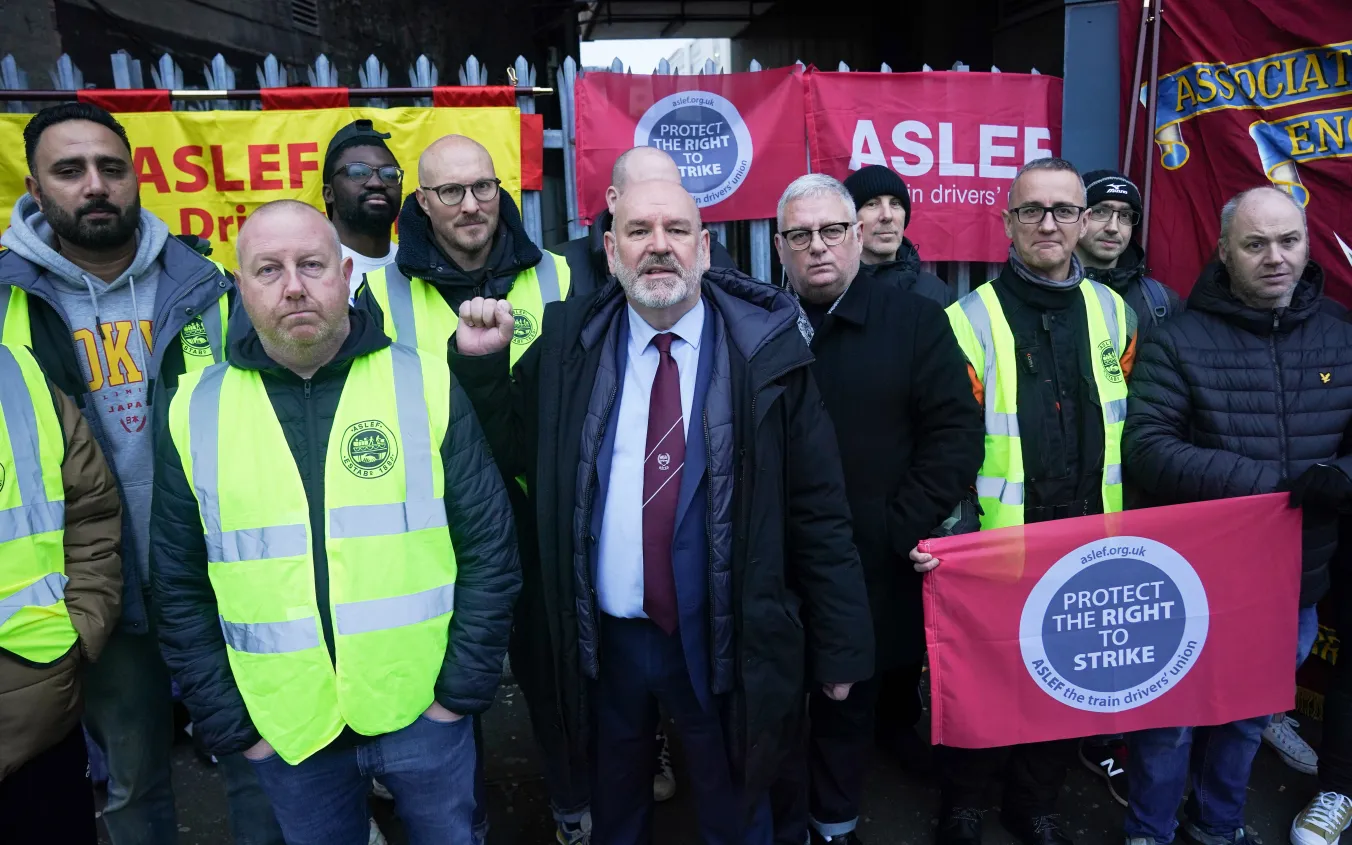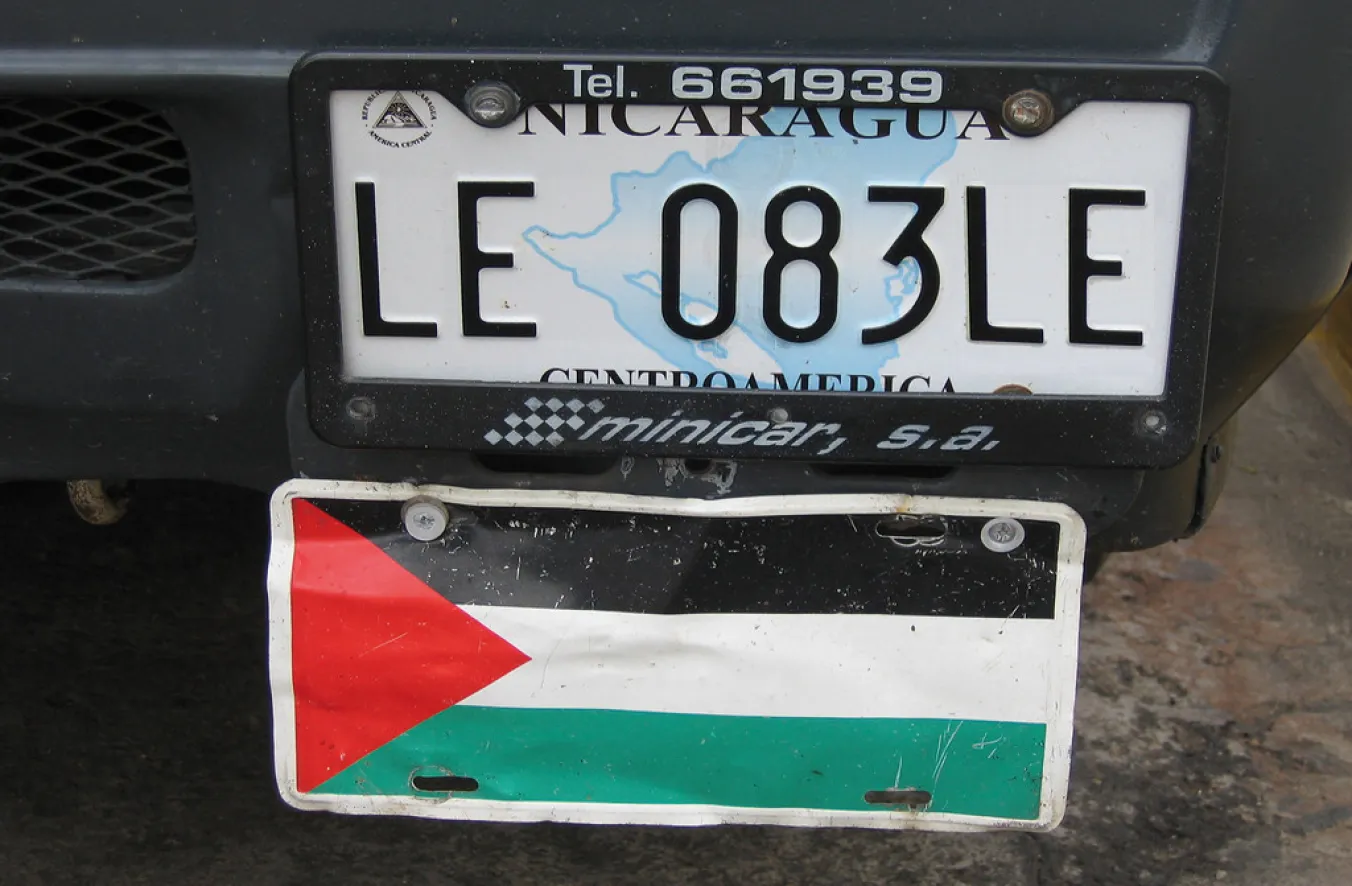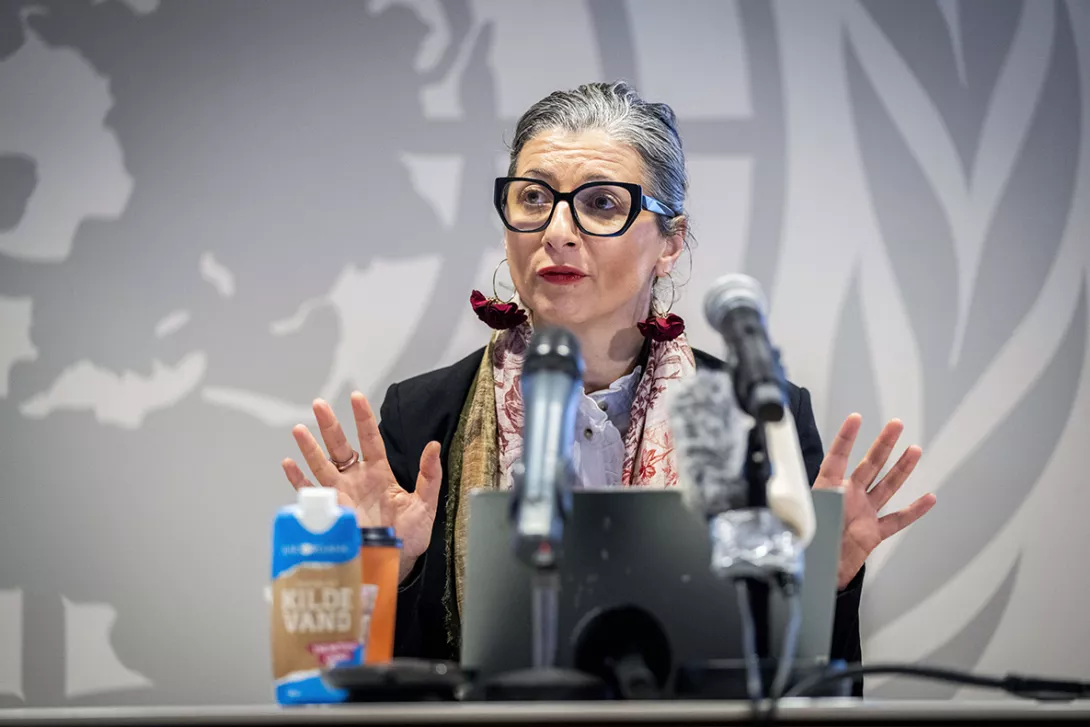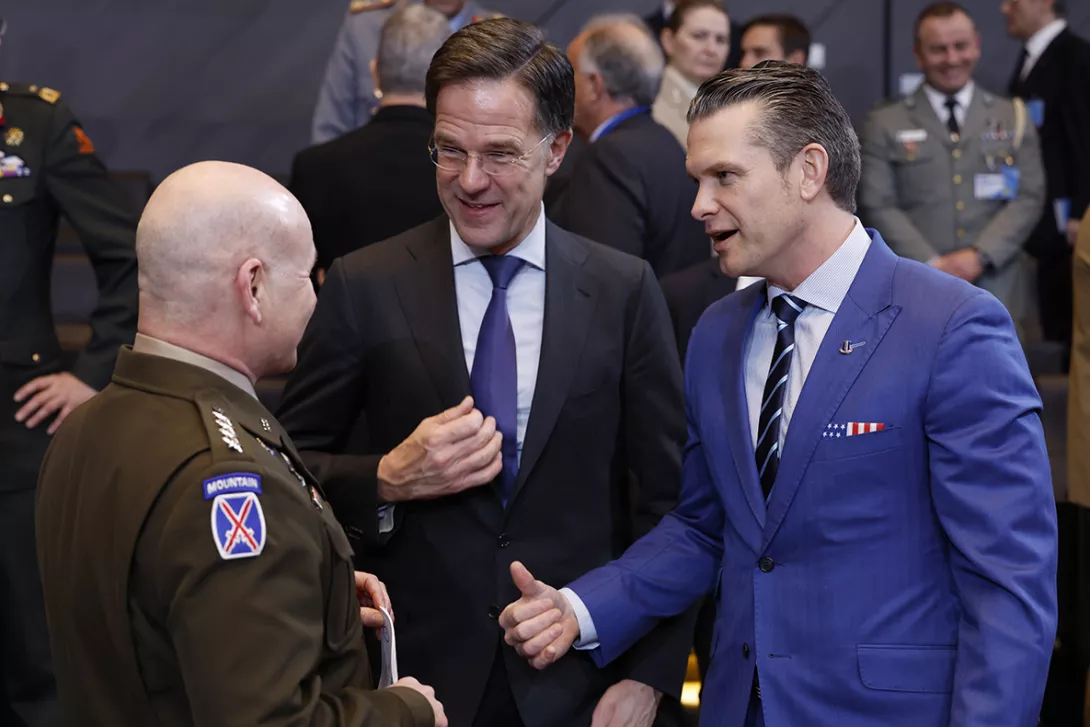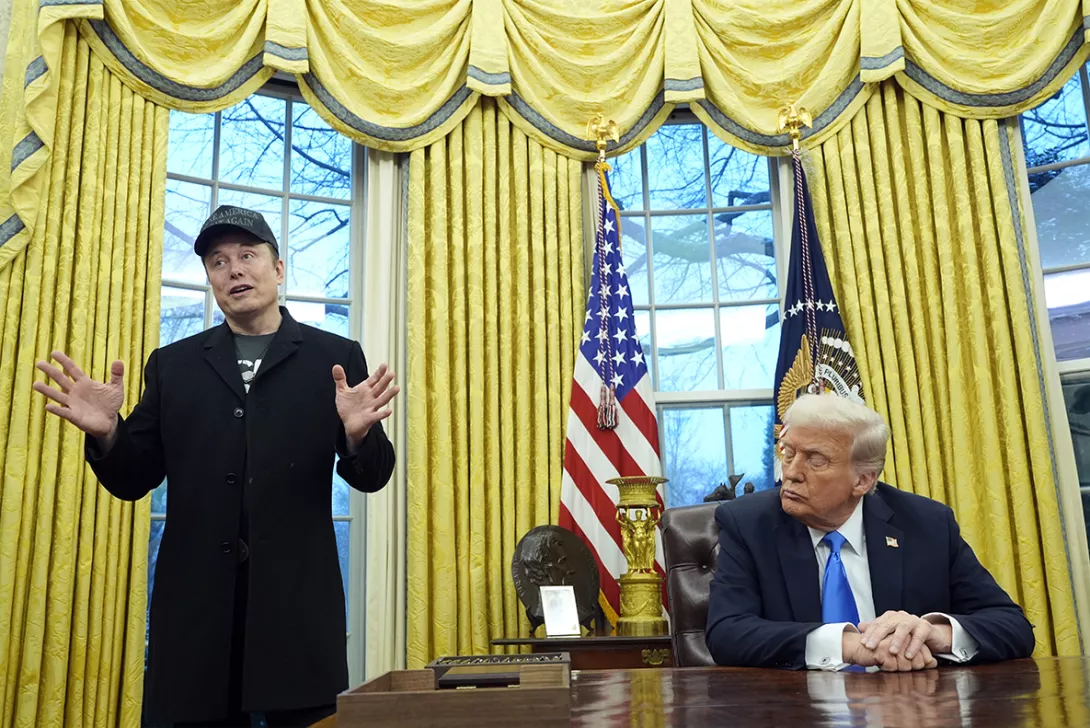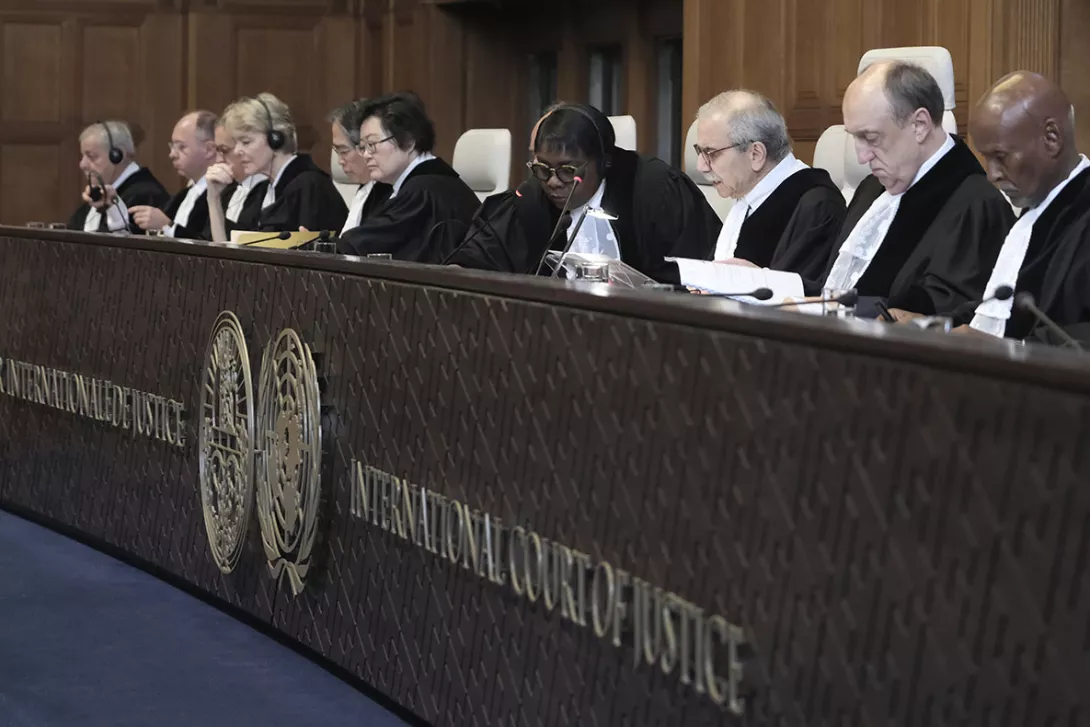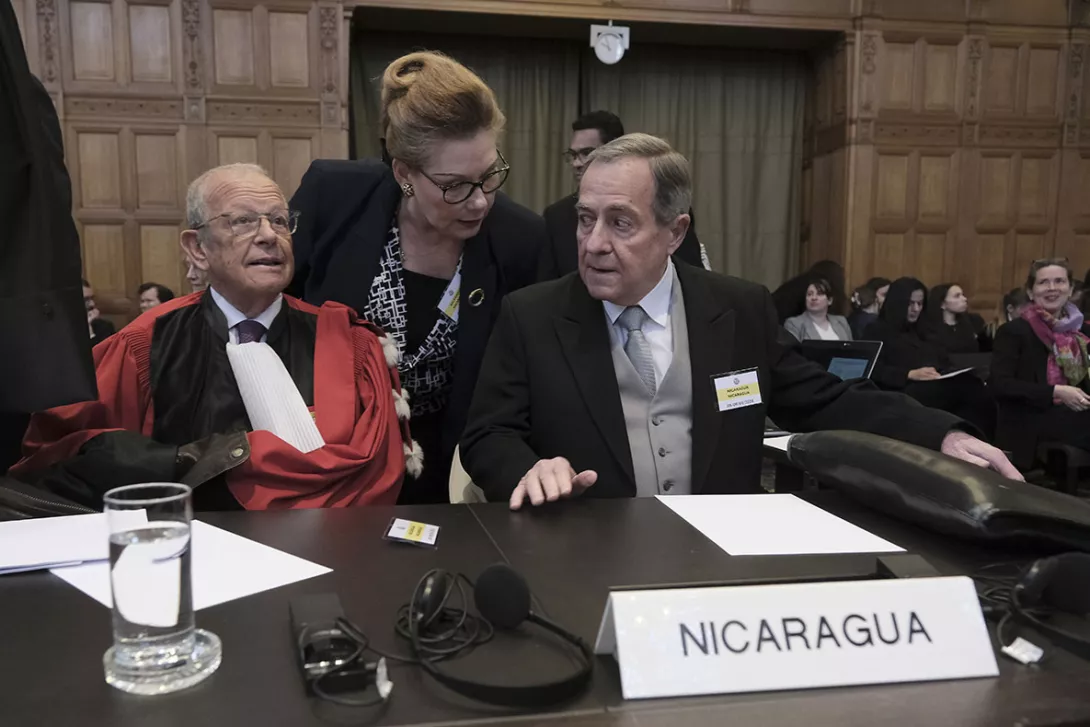
NICARAGUA’S lawsuit accusing Germany of “facilitating genocide” through its arms sales to Israel — as the latter pounds Gaza into dust — reflects a deep shift in international relations.
It is the second case brought to the International Court of Justice (ICJ) regarding Israel’s invasion of Gaza, and in some ways even more ambitious than South Africa’s contention that Israel is committing genocide.
Both lawsuits indicate a new willingness by global South countries to use world institutions to challenge the dominance of the West.
The ICJ may or may not find Israel or Germany guilty; even if it does, it will not do so quickly enough to affect the war. The street movement pressing governments to halt the flow of arms remains the priority.
But the US and European pretension to moral authority as leaders of the “free world” has been fatally undermined.
The countries that have chosen to issue the challenge are not random.
South Africa, which liberated itself from apartheid and now accuses Israel of operating an apartheid regime, is a member of the Brics bloc of developing countries whose growth so spooks the G7 alliance of rich states. Its court case represents a symbolic attack on the appearance of white minority rule at a global level.
Nicaragua is an embattled Latin American republic, one of the socialist-led countries in what the US considers its “back yard” whose government, like those of its close allies Cuba and Venezuela, faces illegal unilateral sanctions and constant destabilisation efforts by its giant neighbour.
South Africa is a significant regional power, with an economy similar in size to Israel’s. But the optics of Nicaragua, a relatively tiny country, challenging Germany, the biggest and richest state in Western Europe, are arresting. They speak to a new spirit of revolt among poorer nations.
The case places Israel’s assault on Palestine in its geopolitical context, identifying Israel as an outpost of Western imperialism by confronting the states standing behind it.
Germany is among the most egregious of these. It is second only to the United States as a supplier of weaponry to Israel.
It has also cracked down especially viciously on expressions of solidarity with Palestine.
In November, the German government banned the Palestinian Prisoner Solidarity Network, Samidoun. It has prohibited Palestine solidarity demonstrations and gone further than even British ministers in smearing any criticism of Israel as anti-semitic.
In February, the two biggest parties, the Christian Democrats and Social Democrats, bizarrely collaborated to order schools in Berlin’s multicultural Neukolln borough to distribute a leaflet, Myths#Israel1948, which asserts that accusing Israel of “land theft” is anti-semitic. So extreme is the bar on expressing support for Palestine that Culture Minister Claudia Roth, after being filmed applauding a film, No Other Land, co-directed by a Palestinian and an Israeli, was forced to state that she had only been clapping the “Jewish Israeli” co-director and not his colleague.
So the logic of forcing Germany to defend its attitude in court makes sense. The challenge comes from a continent at the forefront of resisting the US-led world order.
Nicaragua joins Brazil, which has called for fundamental reform of the United Nations to stop the likes of the US vetoing ceasefire resolutions. It joins Bolivia, which has cut off relations with Israel.
It joins Colombia, whose President Gustavo Petro has accused Germany, France, Britain and the United States of backing genocide to “teach a lesson to all humanity … they are telling us, ‘look at our military power. What is happening to Palestine can happen to any of you’.”
This case is not isolated but reflects the rebellious mood of the whole global South. And while Germany is on trial at the top UN court, the rest of the US camp, including Britain, are beside it in the dock in the court of global opinion. The world is changing.
